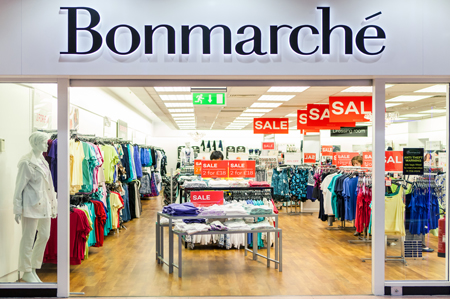
I am not a Retailer. I could not be a Retailer. I have neither skill set nor temperament . I spend most of my working life talking with retailers and wholesalers, so I know a little of one aspect of retailing , that is the supply end and being a consumer , I know, sometimes what it is I want, the demand end. However, on many occasions , I don’t know what I want, which is the source of the problem.
The biggest retailers have access to data to tell them that their sales of Coca Cola (can’t use the word coke anymore) will peak in two weeks, using history and weather forecasts. They know the sales of baking products are going to explode when the Great British Bake off comes on telly. Sales of beer and pizza will suddenly jump when there is major sporting event on TV. Supermarkets , will know , I suspect , exactly how many loaves of sliced bread they will sell each and every week. But most retailers don’t have that data or sell the sort of product that is that demand reliable.
Twenty years ago, buyers would turn up at trade shows and apart from new product, and then they would be very wary of anything new, as they knew what sold last year would sell next year and taking on new products meant taking a chance; they would order their needs for the year. Actually it wasn’t quite that straight forward but it illustrates the general shape of buying behaviours it was not that long ago.
I sold 2000 widgets last year so I think I will sell 2100 this year (or 1900 depending upon the buyer).
Demand was not pulled it was driven from behind . The retailers (and wholesalers), in most markets, decided what they were going to sell and the consumer had little say in it. An over simplification, perhaps. Nevertheless it was pretty close to the truth. But then it started to change . With the incursion of online retailers and the gradual development of social media ,the consumer was starting to throw its weight. From the online operators offering a far bigger range of product, and sometimes very different product, to the consumer passing on this information via social media.
I believe this is why part of today’s UK Retail High Street is where it is today. There are a lot of tired brands that have received little attention over recent years , notably Arcadia, Debenhams, Edinburgh Woollen Mill……..They sat on their laurels, did not reinvest and lost sight of their customers. The latest Bonmarché supposedly the shop for the over 50’s . Well today’s fifty five year old is a very different beast to that of twenty years ago. Looking at their shop windows you would think you were back in the eighties .
It is easy to to mock, to just stand back and say well they are were a lot of old rubbish. What is not easy is predicting what the Buying Public actually wants. A not so perfect example is this current year of 2020. When the first lockdown of the year in the UK began, all thought that’s it for three months . Nothing is going to sell, except toilet rolls and food, as there is nowhere to sell it . Even the mighty Amazon stopped selling non essentials for a few weeks. But no, small web sites found themselves inundated with demand for craft items, games, toys, puzzles, drawing books, home party items. At its peak demand far exceeded supply. Now when the second lockdown occurred, it was a very different scenario . Why ? Because the consumer behaviour was different. As to why, leave that to the social psychologists reports next year.
There is nothing easy about second guessing the consumer and their wants. It is different if you are a major brand . They have the ability and resources to push their demand . The millions that wait outside The Apple stores when a new product is launched, before knowing how the product will perform. The brand, in this case Apple, telling their audience that they want it . But that wont last forever . But they understand this and develop other income streams, which one day will replace those of their physical products. In this case it is making programmes, films, digital music , and cloud computing (Amazon get 50% of their profits from 10% of their revenue ie Cloud computing). Few organisations have had the resources to adopt alternative strategies, or rather they have no plan to do so.
I am often asked What is selling ? What Should I buy ? I can only answer what sold yesterday and really do not have any idea of what will sell tomorrow. This sounds a bit like copping out. It is . There is no easy answer. Of course, within every range of product there is a core of items that the retailer will know they have to have in their store. But going forward that is not enough.
There are retailers that get it right, or rather they get a lot closer. Zara is one of them . they apparently can turn new ranges around in three weeks . The major successful discounters (certainly in the UK ) have open door policies in respect of seeing suppliers. This does not necessarily mean they know more about what the consumer wants, but it does mean from one end of the chain they are lot closer to what trends are coming through, and can act accordingly.
The bottom line is that there has to be radical rethinking by the retail entrepreneurs on how they operate . it maybe something along the lines of literally of more of a shop window. I have seen this happen with two new retailers in my neighbourhood. One is a deli/grocer , the other is a butcher. The attitude is more
This is what we have in the shop, but don’t hesitate to ask if we don’ have what you want or don’t know what you want .
Think Star Trek. Think Dematerialization. Think Spock being transmitted from Mother Ship to Planet Surface.

Well maybe not quite but I suggest, that to counter the issue of not knowing what to stock and what your customer might want, the technology is not far away. For many the Store will become more of an idea fulfilment location. A place where you will be able to discuss your needs with knowledgeable staff within that field and walk out with what you want rather than what they want to sell you.
Maybe or maybe not. What I can say without any hesitation, retail cannot and will not stay in its present form. This has nothing to do with Covid, Pandemics, Brexit, Deal or No Deal , it has to do with a rapidly changing consumer. Retail must change and it must change radically.

